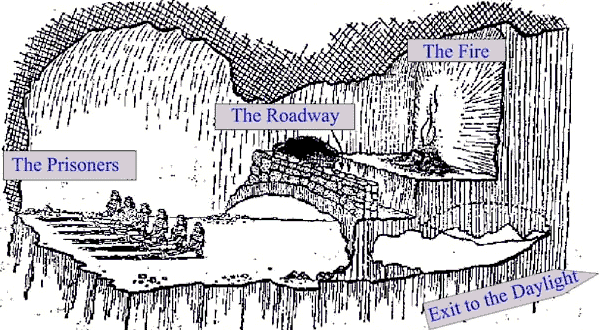Resources for the Newly Enlightened Atheist
There is significant angst in the military community about ‘loss of faith’. Loss of faith is listed explicitly as a moral injury and contributor to general and even traumatic stress. The wording ‘loss of faith’ is framed, purposely or not, for negativity and evangelism. The danger is seeing loss of faith as exclusively a bad thing with one solution: more faith.
See below for the great resources MAAF members and visitors provided.
We at MAAF bump into this sort of situation frequently. In sit-down meetings around the world with MAAF members and religious visitors, we hear these stories about how people arrived at their beliefs. Of those who don’t simply have the beliefs of their parents, we most often hear stories of trauma and loss leading people to religious belief. We generally hear stories of intellectual inquiry and critical thought leading to rejection of faith and adoption of Humanist and other nontheistic beliefs. That’s certainly not always the case, but trauma leading to faith and thought leading to Humanism is the very strong bias.
But not all have chosen. MAAF has received inquiries from people who are in the process of discerning their beliefs. There is a difference between someone ‘angry at God’ and someone who doesn’t believe, and some people aren’t quite sure yet. Even here at MAAF, we point people back at their church if they are believers having a crisis of faith. Someone in a traumatic situation should not be a target for evangelism, whether toward theistic or nontheistic beliefs. However, for someone who doesn’t believe in God anymore or who has serious doubts, then engaging with Humanism and other nontheistic perspectives is the only healthy option.
Faith-based solutions are hurtful rather than helpful for those who don’t see God or divine power in the world. There is a time and a place for evangelism. If you believe something is both true and good, then there is a moral imperative to tell others about it. But that moral imperative must be tempered by the moral imperative to help people in time of need. And in times of need, people should be helped with the tools of their current belief, not exploited into changing their beliefs when they are vulnerable.
For those having a crisis of faith, maybe they should go back to their church and seek help. But for those who have seen the light and have doubts and concerns that their church simply can’t fill, then they should be given Humanist options. Below are two MAAF links followed by selected recommendations from MAAF members. These recommendations haven’t necessarily been vetted beyond their submission by the membership.
MAAF Resources
- The official MAAF introduction to Humanism including story of pastor Jerry DeWitt who lost is family, friends, career as they rejected his new atheist world view.
- The full MAAF recommended book list including Creating Change Through Humanism
Selected Member Submissions
In response to the question: Loss of faith as enlightnment – what are your best resources for the newly atheist?
- Letting Go of Gd by Julia Sweeney (TED Talk) – listen to this and try to hate atheists… it’s very difficult.
- Compleat Secularist by Thomas Vernon (1993)
- Humanist Anthology by Margaret Knight (1961)
- Raising Freethinkers by Dale McGowan (2009)
- Losing My Religion by William Lobdel (2009)
- Atheism in Everyday Life by Greta Christina (2016)
- The Atheist Experience TV Show
- Humanize Me Podcast with Bart Campolo
- Grief Beyond Belief support group
- Meetup.com – doesn’t sound like much, but whether you’re looking for Humanism or Hiking or Bible Study, it’s probably a good option.

